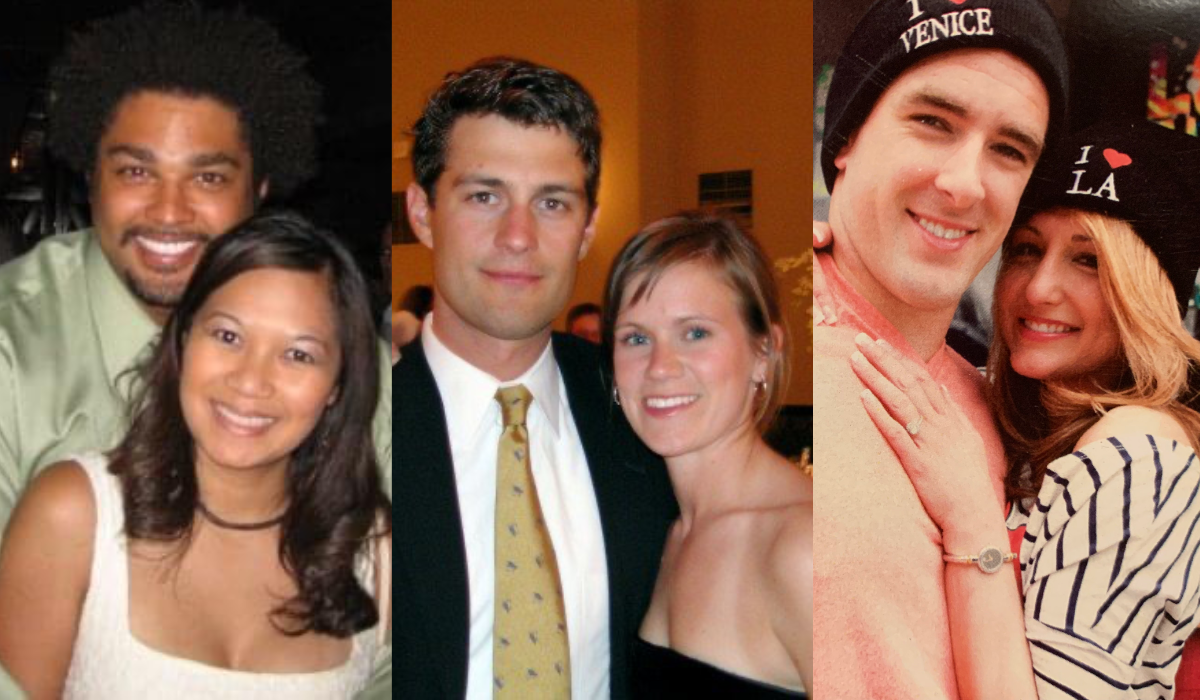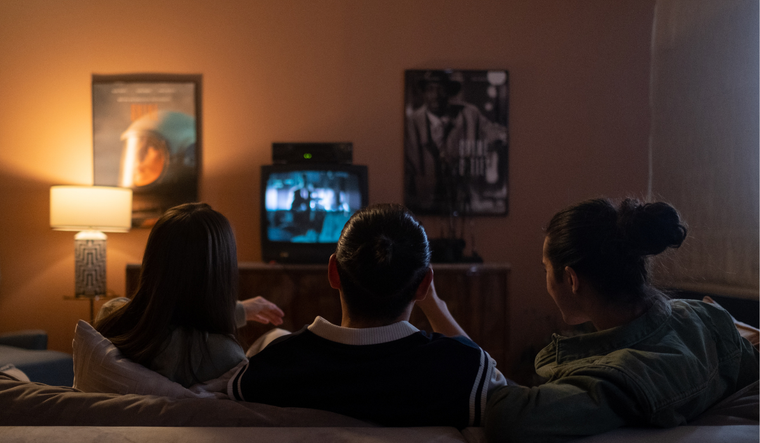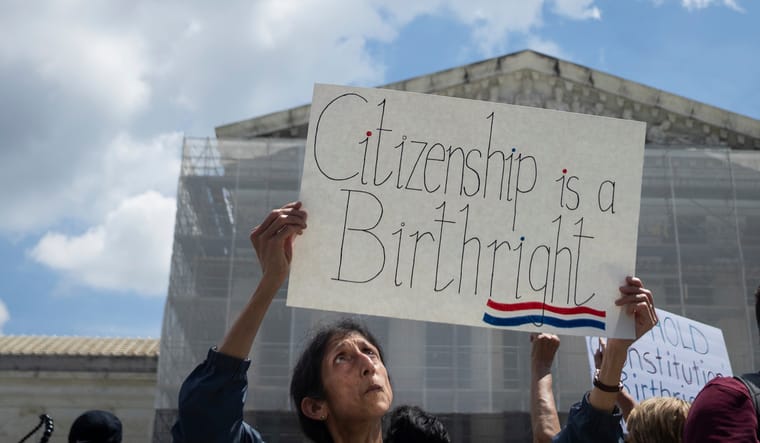Young Widows Share Their Memories and Lessons on Grief After Surviving the Unimaginable
For so many, life has been marked by the passing of a spouse. While this horrible truth is often experienced by people in their later years, many who are quite young lose husbands and wives, thus leaving them “young widows.”
As grief and loss are themes that we explore often at The Sunday Paper, we wanted to honor and shed light on the experience of losing a spouse at such a young age. We interviewed three people for whom the death of a wife or husband happened early. Their willingness to share their pain, revel in their love, and remain hopeful is simply incredible.
We hope their beautiful stories will provide comfort if you, too, are hurting from grief or know of someone who is.
Brooke & Andy
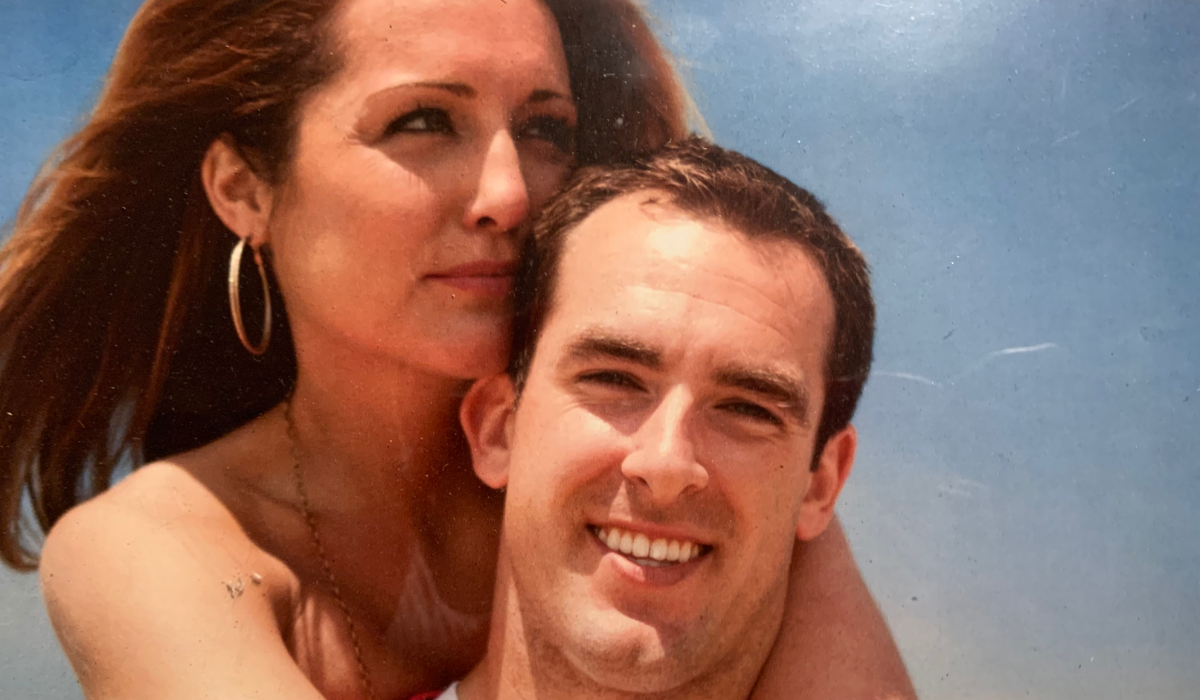
The night Brooke Olzendam met Andy Collins, the two couldn’t stop talking to one another. They had a lot in common. They were both from Washington and living in Los Angeles, working in sports. He was playing arena football and she was covering the PAC-10 conference. But what transcended all of that was their connection. “He called me the next day and we were inseparable after our first date,” Olzendam, a sports broadcaster, tells us. “We fell in love quickly and beautifully.”
Brooke and Andy wed after several years. But only a handful of days after they got married, Andy died from a heart attack. Here, Brooke walks us through the love she will forever have for Andy and what she wants those who’ve lost loved ones at a young age to know.
What first drew you to Andy?
I was drawn to his goofiness. I was drawn to his confidence because it wasn't arrogance. He had a servant's heart. We were best friends. My mom said we were like two 13-year-olds in love. When we talked about marriage he said he needed to go to his parents for a week to have time to decide if his future was marrying me or becoming a priest (which he had always strongly considered). After a week of me worrying, but being respectful of his process, he showed up in my lobby and told me God told him he was crazy if he didn't marry me. I had never been happier.
On the day of Andy’s passing, what are some things you remember that you’re willing to share?
I held his hand when he passed. My mom and aunt had flown cross country [to the hospital] on a red eye. One of my best friends, Shawna, flew down from New York to help. I remember some things, but not a lot. I don't recall the flight home. I just know I had people I love to get me through it.
What does the term widow mean to you?
The term "widow" is a tough one for me. I got to live life with Andy for almost three years. And for 10 days I got to be his wife. It was short, but it was amazing. He taught me so much. He made me so happy.
The term widow sounds like I had a chance at happiness with someone that didn't work out... and now I don't have another chance. But I am surrounded by people I love. I have found a job where I get to go to work with people I love. Yes, I am a widow. But that doesn't mean I am not hopeful for the rest of my life. It was a dark chapter of this long story. I don't want people to pity me. Rather, I want them to appreciate the love they have in their lives. Never take it for granted.
What would you like other young widows to know?
I want to hug them. I also want them to know that they are not alone. Look for support groups. Lean on your family and friends. When you're ready, please seek professional help. It made a world of difference to me. I also want to say I tried to put up a front that I was strong and OK, but I was far from it. I would tell them to let themselves feel everything and experience the hurt and the pain. You will have to at some point. Don't push it down. It will rise back up one day. You have to feel it and face it head-on to move forward.
What is life like for you today?
I have an amazing family and friend group. I love my job and my organization. I still grieve and will never fully understand the WHY of this. But I have to move on for Andy, my family, and the future me. Because that's what Andy would have wanted.
Brooke Olzendam is a sports broadcaster who is currently the courtside reporter for the Portland Trail Blazers. You can learn more and follow her at @brookeolzendam.
Sarah & Mark
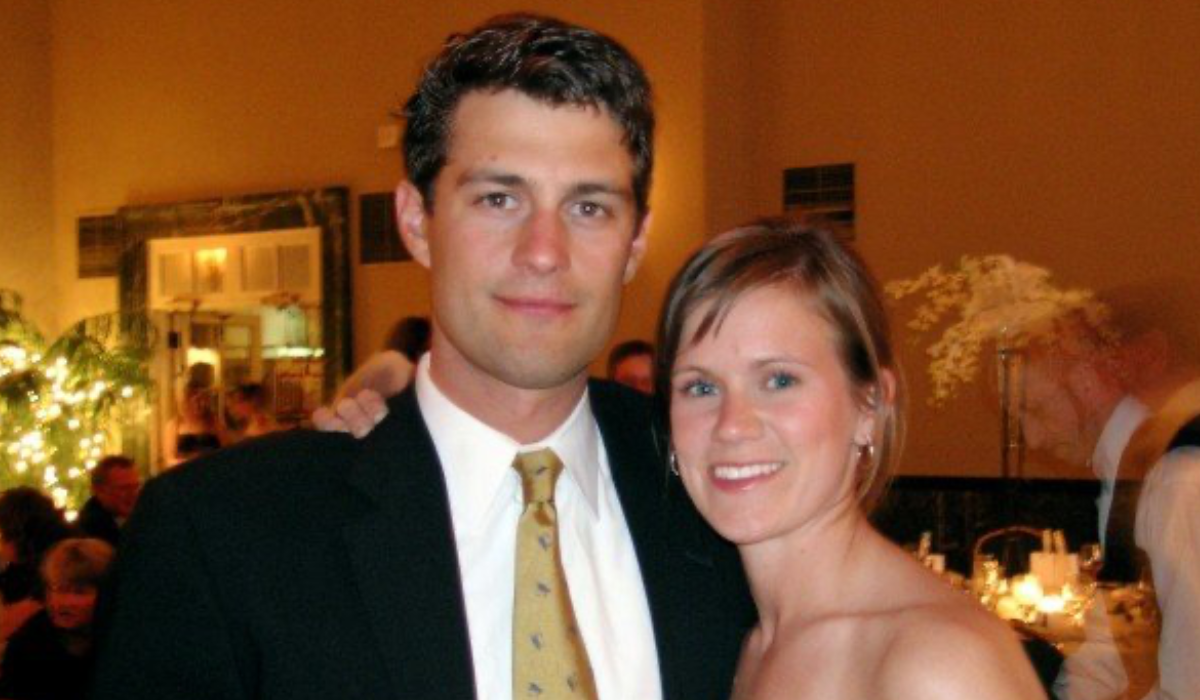
Sarah Pierson met Mark through friends when they were in college. Pierson said they were friends at first until Mark asked her out. “I felt like the luckiest girl in the world,” she tells us. Sarah and Mark married, and the two formed an even tighter bond. As Pierson describes, they were best friends.
One morning, Mark flew with his boss to a fly-fishing trip. He promised to call when he landed. When the day passed with no word from Mark, Sarah felt a pit in her stomach. “I pulled into the driveway of our home to find my in-laws' cars and I knew something was wrong,” she says about later that day. That’s when Sarah learned Mark’s plane had crashed.
In the years following Mark’s death, Sarah chronicled her grief in her book, Young Widow: A Memoir. She hopes her writing will provide other widows with a resource and means of support.
What drew you to Mark?
I was drawn to his good looks, quiet confidence, humble attitude, and outdoorsman nature. He was rugged, a bit dirty, and yet so very handsome. I loved his laid-back vibe and that he was more interested in hunting and fishing than chasing girls. He was a beautiful person.
In hindsight, how have you processed the immense grief of Mark’s passing?
The moment that I learned of his passing still takes my breath away, even 13 years later.
I am a slow processor and stayed in a state of shock for a long time. I remember being asked to call my family and saying that I didn’t want to because voicing the words out loud would make it real. I was in denial or perhaps just wanted to be.
Processing the loss of a loved one and life as it once was, is a long and tedious process. It is certainly not linear. There are multiple ups and downs along the way. I would say I had to CHOOSE to process it. I had to CHOOSE to move forward. It was hard but I realized that my life was going to be drastically different and that although I couldn’t choose what had happened, I could choose how I would respond to it. I sought counseling, support, and resources. I thought through the choices I would have to make in rebuilding a new life and I allowed myself to take chances and try new things. I realized that no one around me knew exactly what I was going through and that gave me the freedom to let go of what others thought about my choices. I moved, pursued a new career path, and tried new hobbies. I traveled. Traveling was an amazing gift as it brought new perspectives on how to live life in different ways. I connected with others and because of my vulnerability, others opened up to me about their losses. I realized that although I was young and had experienced tragic loss, many others had as well. It was through these adventures that I processed the loss of Mark but also the loss of who I once was because losing him forever changed the woman I was.
How do you feel about the term widow?
The term widow makes me cringe. I never identified with it. It brings to mind an older woman and so not only did I struggle with identifying with it, I didn’t want to. A good friend of my In-Laws had lost her husband around the time Mark died and when I saw her after losing Mark, I couldn’t look at this much older woman and process how we both shared the same label. She had shared decades with her husband and they had built a family. I had none of that.
I can clearly remember the first time I had to fill out a form and they had the boxes single, married, divorced, and widowed. I stared at the words and couldn’t get myself to check the box for widow. I finally did but then had to leave the room to gather myself.
I also attended a large grief support group and will forever remember walking hesitantly into the room to find my name card at a table with older individuals. I stayed for that session but never returned for another. I was angry and so very sad that I was a widow. There was a lot of grief in that room.
What would you like to tell others who have lost spouses?
The best support that I received was from those who were willing to sit with me and listen. The friends and family who can sit with you during grief without saying anything are pure gold. If you have these people in your life, let them support you.
Grief is a long and difficult road. Know this and be gentle with yourself. There will be good days and there will be terrible days but there is a light ahead. It does get easier so long as you do the work. Read, get counseling, journal, try new things, pursue passions you have, help others, and travel if you can. Travel and volunteering are two great ways to build perspective and heal. You will be a different person because of this loss. In many ways, you will be stronger because of the pain. The pain of losing Mark brought me the gift of perspective and knowing what is important in life. It made me stronger and built perseverance. I think of him often and try to live a life that he would smile at.
Sarah Pierson is the founder of Purposeful Wanderings, a luxury travel agency that gives back and caters to those experiencing grief and loss. She is also the author of Young Widow: A Memoir. You can learn more and follow her at @purposefulwanderings
Serign & Visa
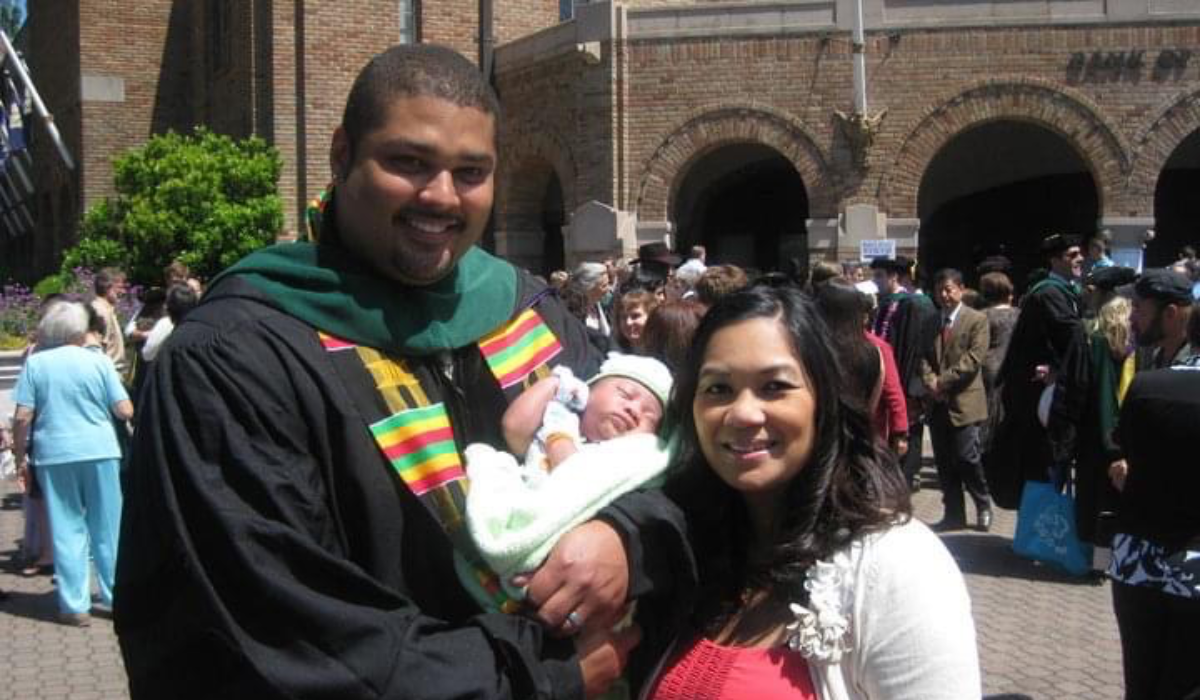
“I’ll never forget it,” Dr. Serign Marong tells us about meeting his late wife, Visa. It was the summer of 2001 and they were both working at the student rec center at Washington State University. “I saw this beautiful girl walking down the stairs,” he says, adding that they struck up a friendly conversation. Since they each had partners at the time, their connection remained only friendly—until about two years later when they were free and open to date. “It wasn't long before we became inseparable.”
Serign says he remembers parts of the day Visa died “minute-by-minute” and others "are a complete blur.” He was at work and unable to quickly respond to Visa's text and call that she sent while at home with their two young boys. When Serign called back—several times—there was no answer. He got a gut feeling and called the neighbor to help. He rushed home to find Visa surrounded by medics. As she was put on a stretcher, he told her that he loved her. “I don’t know if she heard me,” he tells us. “I never saw her awake again.”
These days, Serign says he is living a beautiful life, remarried, and a father and stepfather. As he tells us here, the immense grief he experienced was and still is painful, but there is still so much love to experience in life when you open your heart.
What drew you to Visa?
She had this infectious smile. Given the fact that we both had unique names, striking up a conversation was easy. However, we were both with other people at the time and it was nothing more than a very friendly conversation.
It wasn't until about two years later that we started dating. We shared a circle of friends that always seem to end up hanging out or partying together. She had that energy that everyone loved being around. I remember one party we were at together where someone asked how long we had been dating. For some reason, we both simultaneously said, “oh we're not dating.” That got a pretty good laugh from everybody around us, so it was quite obvious to all that something special was going on.
The following year is when I got into medical school and we both moved to Seattle together. I feel like we had been trying to keep things casual up until that point, but we moved in together at that time and it was obvious where it was heading after that.
In hindsight, how did you begin to process the unexpected loss of Visa?
That night, lying in bed with our one- and three-year-old boys alone, was the most empty and lonely feeling I have ever had. I just remember thinking… What the hell am I going to do?
In terms of processing this loss. That did not begin until much later. Instead, I just found ways to avoid the pain.
How do you feel about the term widower?
I don’t remember ever really referring to myself as a widower. It does seem to me like a term meant for someone much older. However, I have found groups on social media who identify as young widows/widowers. That has been a place where that feels comfortable.
Now that I’m remarried, the term does not seem right.
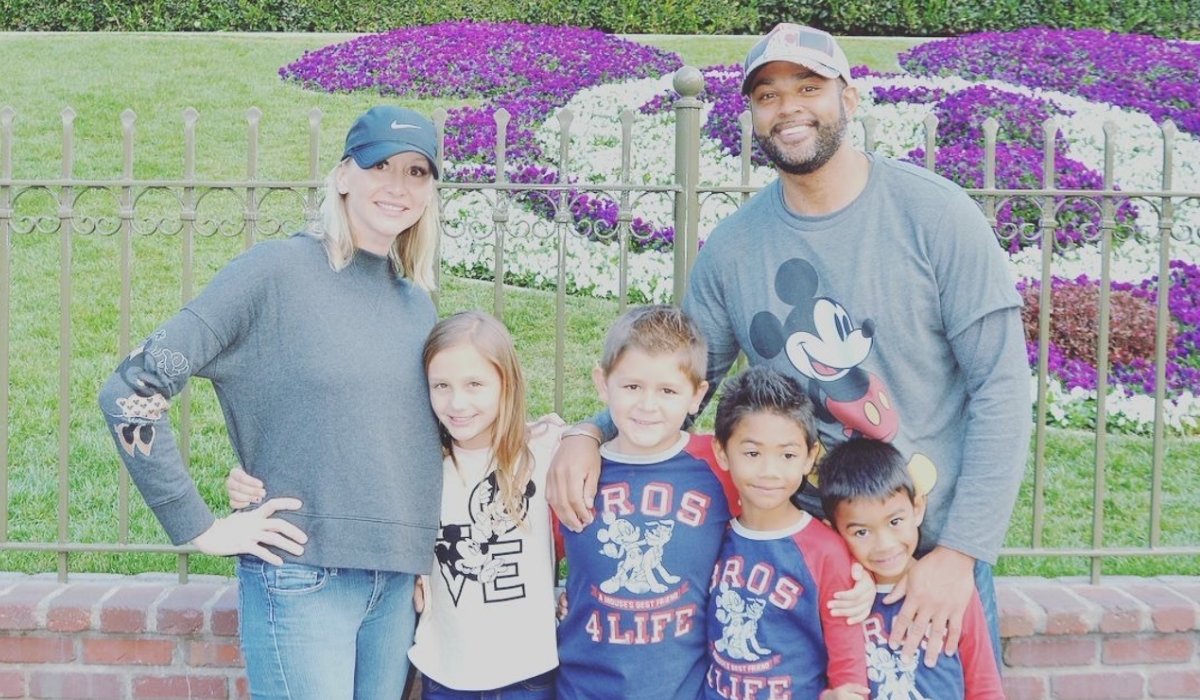
What would you want others who have also lost spouses at a young age to know?
For a while, I could only look at my life as what I had lost. I focused on how unfair it was that she was taken from me. That she was taken from her boys. Even though I could intellectually understand that other people had tragedies like this, it wasn’t until I realized I was not alone in this type of suffrage that I started to recover.
Also, I hate the saying that everything happens for a reason. Seven years out, remarried, and living a great life, I still don’t like nor agree with this saying. I can’t fathom why God or the universe would intentionally take this beautiful soul away from us. I find more comfort in simply saying it happened. It sucks. It’s a shitty situation that we were thrown into.
Finally, I came to the realization that this shitty situation can either destroy me, or I can learn and grow from it. So that’s what I did. With help from family, friends, and therapy, I learned to grow from this. I use this loss to be conscious of my life and relationships today. I even use this loss to relate to my patients. It helps me feel that even though she died young, she can still make a difference in people’s lives.
What is life like today for you?
Life for me is beautiful today. But I’ll be quick to point out, it is not perfect. My wife and I have this beautifully blended family. Her two kids, my two kids, and a one-year-old we have together. Of course, blended families bring a challenge, but we also met at a difficult time. I was trying to avoid my grief and move on, and so was she. Something people should know is that you don’t need a tragic death to have grief. My wife was going through grief from a divorce. It was the grief of a life she had planned for and lost.
At first, I think we both avoided our pain and found comfort in new love. I can’t speak for her, but I also found comfort in being with someone who had no firsthand knowledge of my previous life. It made it easier to avoid the pain. But all of that caught up with me. While we struggled to move our relationship to another level, I realized I was holding on to it because I was afraid of another loss. Once I did some real grief work, my heart became truly available and open to love again.
Visa is still very present in my life. I talk about her with our boys and even with our new family. That loss has taught me to be more present and conscious of life today. I appreciate the small things more. And even the bad things, I know are temporary and a part of life. Like I said, is it perfect? Absolutely not. But it is beautiful.
Serign Marong, MD is a family practitioner and an avid educator about family health and wellness. To learn more about Dr. Marong and to follow his educational posts, go to @serendipity.md on Instagram and @serendipity.md on TikTok.
Please note that we may receive affiliate commissions from the sales of linked products.

